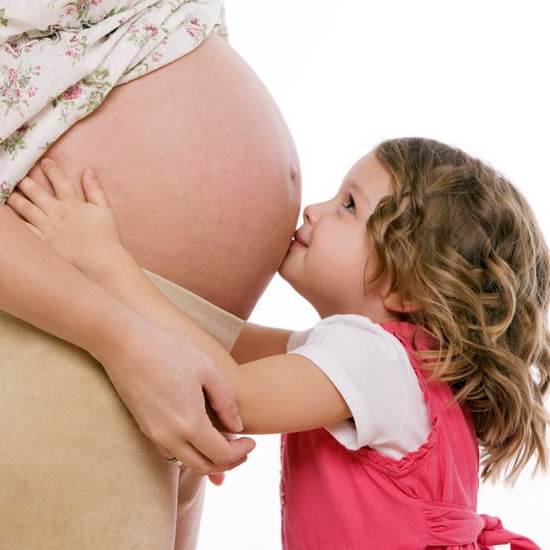The impact of Covid during pregnancy has become a growing concern as the pandemic continues to affect communities worldwide. As the healthcare industry continues to find ways to address the challenges faced by pregnant women during this time, it is crucial to understand the specific risks, symptoms, and recommended health guidelines for expecting mothers. In this article, we will explore the various aspects of Covid during pregnancy, from risk factors and symptoms to precautionary measures and vaccine information.
Pregnant women are particularly vulnerable to the complications of Covid, making it essential for healthcare providers and expecting mothers alike to be well-informed and prepared. This article aims to provide valuable insights into navigating pregnancy amidst the ongoing pandemic, offering guidance on seeking medical care, understanding mental health implications, and staying updated on vaccination recommendations for pregnant women.
By delving into these critical topics, we hope to equip our readers with the knowledge they need to make informed decisions about their health and well-being during this challenging time.
With a focus on promoting awareness and understanding of Covid’s impact during pregnancy, this article will provide comprehensive information aimed at supporting pregnant women in safeguarding their health and that of their unborn children. From risk factors and symptoms to precautionary measures and vaccination guidance, we aim to shed light on how expecting mothers can navigate through their pregnancy journey amidst the uncertainties brought about by the pandemic.
Risk Factors
During the Covid pandemic, pregnant women face an increased risk of complications if they contract the virus. Certain factors can further exacerbate this risk, making it crucial for expectant mothers to understand and address these risk factors in order to protect themselves and their unborn child. Below are some key factors that increase the risk of Covid complications during pregnancy:
- Advanced maternal age: Women who are older than 35 years old may be at a higher risk for severe illness from Covid during pregnancy.
- Pre-existing health conditions: Pregnant women with pre-existing conditions such as obesity, diabetes, asthma, or hypertension are more vulnerable to Covid complications.
- Immunocompromised status: Women with weakened immune systems due to medical treatment or underlying health issues may face a higher risk of severe illness from Covid.
It is important for pregnant women to be aware of these risk factors and take extra precautions to minimize their exposure to the virus. By understanding these factors, expectant mothers can work closely with their healthcare providers to develop a plan for reducing the risk of contracting Covid during pregnancy.
In addition, recognizing these risk factors can also help pregnant women advocate for themselves in seeking appropriate medical care and support during this challenging time. It is crucial for expectant mothers to prioritize their health and well-being in order to ensure a safe and healthy pregnancy amidst the ongoing Covid pandemic.
Symptoms
During pregnancy, it is important for women to be aware of the common symptoms of Covid. While some symptoms may be similar to those experienced by non-pregnant individuals, pregnant women may experience more severe complications due to their condition. It is crucial for expectant mothers to monitor their health and seek medical attention if they experience any of the following symptoms:
- Fever
- Cough
- Shortness of breath or difficulty breathing
- Fatigue
- Muscle or body aches
- Headache
- New loss of taste or smell
- Sore throat
It is important to note that some pregnant women with Covid may also experience gastrointestinal symptoms such as nausea, vomiting, or diarrhea. If any of these symptoms are present, it is essential for expectant mothers to get tested and consult with their healthcare provider as soon as possible.
During the Covid pandemic, it is critical for pregnant women to stay informed about the potential symptoms and seek medical care if they suspect they have been infected with the virus. By paying close attention to these common symptoms, pregnant individuals can take proactive measures to protect both their own health and the health of their developing baby.
Health Recommendations
Pregnant women are at an increased risk of severe illness from Covid during pregnancy, according to the Centers for Disease Control and Prevention (CDC). It is crucial for expectant mothers to follow specific health recommendations to protect themselves and their unborn child from the potential complications of Covid-19.
First and foremost, pregnant women should take all necessary precautions to minimize their risk of exposure to the virus. This includes wearing masks in public settings, practicing social distancing, and frequently washing hands with soap and water. Avoiding close contact with individuals who are sick or have been exposed to the virus is also essential in reducing the risk of contracting Covid during pregnancy.
In addition, it is highly recommended that pregnant women stay up-to-date with their prenatal care appointments and vaccinations. Seeking regular medical check-ups allows healthcare providers to monitor the pregnancy’s progress closely and address any potential concerns related to Covid-19.
Moreover, getting vaccinated against Covid-19 is considered safe for pregnant women and provides significant protection against severe illness. The CDC strongly advises pregnant individuals to get vaccinated unless they have a specific contraindication identified by their healthcare provider.
| Health Recommendation | Description |
|---|---|
| Wearing Masks | Pregnant women should wear masks in public settings to reduce the risk of exposure to Covid-19. |
| Prenatal Care Appointments | It is important for expectant mothers to attend regular prenatal care appointments for close monitoring of their health and pregnancy. |
| Vaccination | Pregnant women are encouraged to get vaccinated against Covid-19 unless contraindicated by their healthcare provider. |
Precautionary Measures
The Covid-19 pandemic has brought about numerous challenges for pregnant women, as they navigate through the uncertainties of this unprecedented time. Taking precautionary measures to protect themselves from the virus is crucial for expecting mothers. The immune system undergoes changes during pregnancy, making women more susceptible to respiratory infections, including Covid-19. Research has shown that pregnant women with covid during pregnancy are at an increased risk of experiencing severe illness compared to non-pregnant individuals.
One important precautionary measure for pregnant women is to practice strict hygiene and sanitation measures. This includes regular handwashing with soap and water for at least 20 seconds, using hand sanitizer with at least 60% alcohol when soap and water are not available, and avoiding touching the face. Additionally, wearing a mask in public settings and maintaining social distancing from individuals outside their household can further reduce the risk of exposure to the virus.
Furthermore, pregnant women should prioritize their mental and emotional wellbeing during this challenging time by seeking support from loved ones, engaging in stress-reducing activities, and consulting with healthcare providers if they experience any mental health concerns related to the Covid-19 pandemic. By actively taking these precautionary measures, pregnant women can help safeguard their health and that of their unborn child amidst the ongoing pandemic.
| Precautionary Measures | Protective Measures |
|---|---|
| Regular handwashing | Wearing a mask in public settings |
| Using hand sanitizer | Maintaining social distancing |
| Prioritizing mental wellbeing | Seeking support from loved ones |
Medical Care
Pregnancy is a time of great change and can be a vulnerable period for women, especially during the Covid pandemic. It is crucial for pregnant women to continue seeking medical care and attending regular check-ups despite the challenges presented by the ongoing public health crisis. Understanding the importance of medical care and staying informed about health guidelines can help ensure the well-being of both mother and baby during these uncertain times.
Importance of Regular Check-Ups
Regular prenatal visits are essential for monitoring the health and development of the fetus, as well as for addressing any potential complications that may arise during pregnancy. These routine check-ups allow healthcare providers to assess a woman’s physical and emotional well-being, provide necessary screenings, monitor fetal growth, and offer guidance on nutrition and exercise.
Additionally, regular check-ups give pregnant women the opportunity to discuss any concerns or symptoms they may be experiencing related to Covid during pregnancy.
Adapting to Telemedicine
In light of the Covid pandemic, many healthcare providers have adopted telemedicine as a means of delivering prenatal care. This involves conducting appointments via virtual platforms, allowing pregnant women to consult with their healthcare providers from the safety of their own homes.
While in-person visits are still necessary for certain procedures and examinations, telemedicine has proven to be an effective alternative for routine check-ups and non-emergency consultations, minimizing potential exposure to Covid while ensuring continued medical care for expectant mothers.
Seeking Timely Medical Attention
It is crucial for pregnant women to seek prompt medical attention if they experience concerning symptoms related to Covid during pregnancy or any other pregnancy-related complications. Persistent fever, difficulty breathing, chest pain, confusion, bluish lips or face, severe abdominal pain or contractions before 37 weeks gestation are reasons to seek immediate medical care.
Additionally, it’s important for pregnant women to keep abreast of information regarding access to healthcare facilities in their area and understand how triaging systems operate amidst the pandemic in order to receive timely assistance when needed.
Mental Health
The mental and emotional impact of Covid during pregnancy can be significant, as expectant mothers may experience increased stress and anxiety due to the uncertainties and health risks associated with the pandemic. It is important for pregnant women to address these concerns and prioritize their mental well-being as they navigate through these challenging times.
Increased Stress and Anxiety
Pregnant women may experience heightened stress and anxiety levels while dealing with the fear of contracting Covid during pregnancy. The constant worry about the health of themselves and their unborn child, coupled with concerns about accessing adequate healthcare and support services, can contribute to elevated levels of stress. Additionally, the isolation brought on by social distancing measures can further exacerbate feelings of loneliness and anxiety.
Importance of Mental Health Support
It is crucial for pregnant women to seek out mental health support when dealing with the emotional impact of Covid. Counseling, therapy, or support groups can provide a safe space for expectant mothers to express their concerns, fears, and emotions. Seeking professional help can also equip pregnant women with coping strategies to manage stress and anxiety effectively.
Self-Care Practices
Engaging in self-care practices is essential for maintaining good mental health during pregnancy amidst the Covid pandemic. This includes prioritizing adequate rest, engaging in regular physical activity (as recommended by a healthcare provider), practicing relaxation techniques such as deep breathing or meditation, maintaining social connections virtually, and seeking out enjoyable activities that bring comfort and joy.
Incorporating these self-care practices into daily routines can help alleviate stress and promote overall well-being for pregnant women experiencing the mental and emotional impact of Covid during pregnancy.
Vaccine Information
In conclusion, it is crucial for pregnant women to be well-informed about the risks and impact of Covid during pregnancy. The risk factors and common symptoms should be understood, and recommended health guidelines and precautionary measures should be followed diligently to protect both the mother and the unborn child from the virus.
Seeking regular medical care and check-ups during pregnancy is essential, as it can help in early detection and timely management of any potential complications related to Covid during pregnancy.
In addition to physical health, the mental and emotional impact of Covid during pregnancy should not be overlooked. Pregnant women may experience increased levels of stress and anxiety due to the uncertainties surrounding the pandemic. It is important for healthcare providers to address these concerns and provide necessary support to ensure the overall well-being of pregnant women.
Furthermore, with regards to Covid vaccination for pregnant women, it is important for them to consult their healthcare provider for personalized guidance. While there may have been initial concerns regarding the safety of Covid vaccines during pregnancy, recent studies have shown that the benefits of vaccination outweigh the potential risks for both mother and baby. By staying informed and making informed decisions about vaccination, pregnant women can take proactive steps to protect themselves from covid during pregnancy.
Frequently Asked Questions
Can Covid During Pregnancy Cause Birth Defects?
There is currently no definitive evidence that Covid during pregnancy directly causes birth defects. However, some studies have suggested a potential increased risk, so it’s important for pregnant women to take precautions.
How Does COVID-19 Affect the Outcome of Pregnancy?
Covid-19 can lead to adverse outcomes in pregnancy, such as preterm birth and the need for intensive care. Pregnant individuals with underlying health conditions may be at higher risk for severe illness from Covid-19.
Does Having Covid While Pregnant Give Baby Antibodies?
Research has shown that babies born to mothers with Covid-19 may have antibodies against the virus. This can potentially provide some level of protection to the baby in the early months of life, but more research is needed to fully understand this aspect.

Welcome to my fertility blog. This is a space where I will be sharing my experiences as I navigate through the world of fertility treatments, as well as provide information and resources about fertility and pregnancy.





